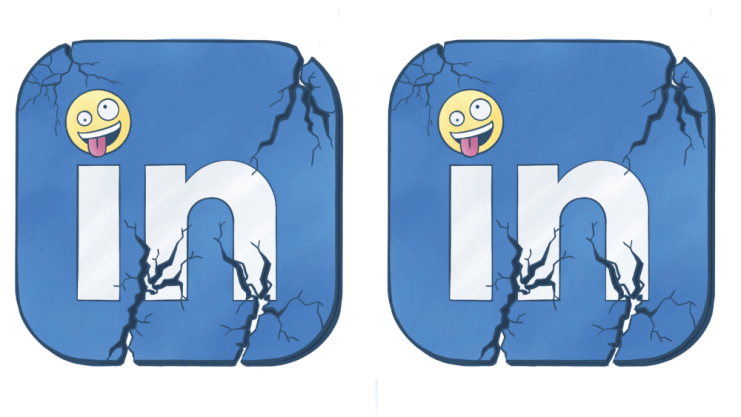Has Linkedin lost the plot?

An anal fissure. You might assume, if it happened to you, you’d keep it on the downlow. Stay in bed, tell people you had “an operation”, maybe book a couple of weeks off work using a discreet doctor’s note.
But the modern business influencer would do no such thing. No, they would instead go straight to Linkedin, cannula still pumping morphine into their veins, and write a post about their Learnings from the experience (in this case endurance and, ahem, humility).
This is a true story about life on Linkedin in 2024, a time when nothing is off limits and insight can be gleaned from almost any situation, however outlandish or banal. A marriage to the love of your life becomes a chance to describe your brand new “strategic partnership”. Been dumped? What a great case study for improving customer-client relations. A death in the family? Surely an excuse to reinforce the importance of staying upbeat during B2B sales.
Over on Linkedin, people are exposing their nether-region-nasties purely for engagement, and that cannot be an expression of a healthy society
Keep scrolling and you’ll be bombarded with wisdom about Why Retirement Is a Scam, how to click effortlessly into Founder Mode (and secure $5m of investment through sheer vibes) and what PRs can learn from the Oasis reunion (“There’s ‘Definitely, Maybe’ an angle, if you look hard enough”).
Linkedin was founded in 2003, nine months before Facebook, in Silicon Valley (no surprises there). In 2016 Microsoft bought it for $26bn. Now, almost a third of US adults use the networking site and it boasts more than a billion users worldwide. The volume of posts has grown by 41 per cent over the past decade.
Its comrades have fallen. Facebook is populated by your boomer uncle and his mates. Instagram is the domain of lifestyle influencers. Twitter is on its knees, begging for mercy.
Linkedin, meanwhile, reigns supreme, an unlikely victor in the social media wars. This is largely, I think, down to the increasingly popular idea that you are your CV, that productivity is the ultimate goal, that we could all be rich and successful if only we could crack the business code (which may or may not be connected to one’s anal fissure).
You could point to the fact journalists have been looting our lives for content for centuries. When I did jury service and had an existential crisis after convicting a murderer to 27 years in jail, what did I do? Turn it into an article. When my parents nearly got scammed into giving over money to a stranger, I used the incident as fodder for a column. Social media gurus and journalists, saddening though it is for me to admit, share many of the same toxic traits: narcissism, oversharing, the amplification of one’s character to grotesque proportions to make a point.
But at least in journalism, we claim to do it for noble causes: “freedom of speech” or “the public’s right to know” or – if you’re a long-form writer like me and others in this magazine – the even more nebulous pursuit of ‘Art’. Over on Linkedin, people are exposing their nether-region-nasties purely for engagement, and that cannot be an expression of a healthy society.